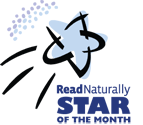“I’m not smart enough.” “I’m not good at this.” Has a student ever said these things to you? How do you respond? Pinched for time, it may be tempting to flippantly disagree (“Sure you are!”) or brush the comments off. But taking the time to help the student change his mindset may be one of the most effective interventions you can make.
 More than three decades of research shows that students who believe intelligence can be developed (growth mindset) greatly outperform students who believe intelligence is something they either have or don’t (fixed mindset). When students understand that they can grow their brains through hard work, they do just that. Conversely, when students think, “I’m just not smart enough”—or the opposite, “I’m smart, so this should be easy”—motivation and performance decline.
More than three decades of research shows that students who believe intelligence can be developed (growth mindset) greatly outperform students who believe intelligence is something they either have or don’t (fixed mindset). When students understand that they can grow their brains through hard work, they do just that. Conversely, when students think, “I’m just not smart enough”—or the opposite, “I’m smart, so this should be easy”—motivation and performance decline.
As you know, a fixed mindset is particularly problematic for struggling readers. To achieve fluency and comprehension, the struggling reader must be motivated to work hard at something that’s challenging. If the student is quick to give up or lose confidence, he’ll never log the practice time needed to master reading.
So how can you foster a growth mindset in your students? Carol Dweck, pioneer of the mindset research, recommends explicit instruction on the brain as a muscle we can grow—one that gets stronger the more we use it and the harder we work.
“Teachers should help students value effort,” Dweck states in an interview with Education World. “Too many students think effort is only for the inept. Yet sustained effort over time is the key to outstanding achievement.” Dweck also states that teachers should teach students to relish a challenge. “Rather than praising students for doing well on easy tasks, they should convey that doing easy tasks is a waste of time. They should transmit the joy of confronting a challenge and of struggling to find strategies that work.”
The Read Naturally Strategy is built upon these exact principles. Students work at a level that provides a challenge. They practice each story until they achieve fluency, proving their ability to master something difficult through sustained effort. By monitoring their progress, they see tangible, motivating evidence of their hard work. With each new story, they’re eager to work even harder to beat their previous performance.
In our 24+ years of helping struggling readers, we’ve watched countless students go from, “I’m not good at this,” to, “I can read!” Especially when combined with messages like the ones Dweck recommends, a Read Naturally intervention is a straight path toward reading success and a growth mindset—both of which will serve your students well for the rest of their lives. Please get in touch to learn more about our programs or start a free trial.
 Share your student’s success story—nominate him or her for our Star of the Month award. Win a Barnes & Noble gift card for the student and a Read Naturally gift certificate for your class!
Share your student’s success story—nominate him or her for our Star of the Month award. Win a Barnes & Noble gift card for the student and a Read Naturally gift certificate for your class!
Post a New Comment